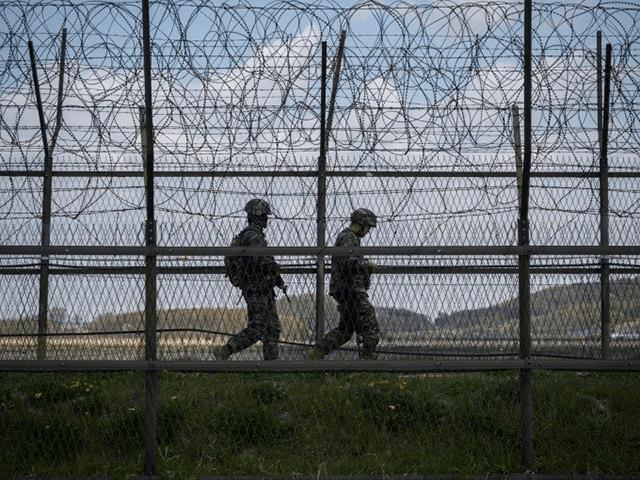A South Korean person described by Seoul as a presumed North Korean defector crossed back into North Korea via the heavily fortified inter-Korean border on Saturday, Seoul confirmed Monday.
“Regarding the border crossing, the authorities presume the person is a North Korean defector and are in the process of verifying related facts,” South Korea’s Ministry of National Defense said in a statement issued January 3.
The man successfully crossed the border separating North and South Korea, which is one of the most heavily fortified boundaries in the world, on the night of January 1.
“The person was detected in the Demilitarised Zone (DMZ), which separates the two Koreas, at a point on the east coast at about 21:20 local time (12:20 GMT) on Saturday,” South Korea’s Joint Chiefs of Staff (JCS) confirmed.
The DMZ is replete with landmines and lined with barbed wire and electric fencing. Armed guards and surveillance cameras monitor the zone 24 hours a day. North Korea currently observes a “shoot-to-kill” policy in the DMZ implemented by Pyongyang to allegedly help protect the country from the Chinese coronavirus.
South Korea’s Defense Ministry said on Monday it had conveyed a message to North Korea inquiring about the status of the border crosser but had not received a reply as of January 3.
“We have sent the message in light of protecting our national, and we have not received a reply from North Korea yet,” South Korean Defense Ministry Spokesman Boo Seung-chan told reporters at a regular press briefing.
Saturday’s border crosser appears to be the same man “who crossed a barbed wire fence on the heavily fortified border to enter the South in November 2020,” South Korea’s Yonhap News Agency noted on Monday.
Thousands of North Koreans have defected to South Korea in recent years, though most have done by way of China. Border crossings between North and South Korea via the DMZ are rare. Some North Korean defectors find a free lifestyle outside of Pyongyang’s tightly restricted Communist regime exceedingly difficult, especially if they have no close contacts or family in South Korea. The culture shock, combined with “barriers to education, accommodation and employment opportunities” in South Korea, may cause North Korean defectors to return to their home country.
The Korea Hana Foundation (KHF), a South Korean state-run organization that assists North Korean defectors settling in the South, released a study in February 2020 that found “17 percent of the 3,000 individuals polled said they had experienced discrimination over the previous 12 months.”
“More than 30,000 North Koreans have defected to the South since the famine in the 1990s, according to South Korea’s Unification Ministry,” Deutsche Welle (DW) reported in October 2021.
“The number of North Korean defectors dropped from more than 1,000 in 2019 to 229 last year, after the North brought in strict border controls to prevent spread of the coronavirus,” the German public broadcaster noted.

COMMENTS
Please let us know if you're having issues with commenting.